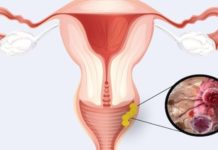The success of treatment of the urinary system largely depends on the accuracy of the diagnosis. Proper preparation for the study of ultrasound of the kidneys will make the right diagnostic conclusions. And if deciphering the results of the study is a matter of the doctor’s competence, then the patient is fully responsible for the quality of the preparatory measures for the procedure.
It is important to understand that non-compliance with the doctor's recommendations before performing an ultrasound of the kidneys can completely distort the result of the study and making the correct diagnosis will become impossible.
Material Content:
Features of the procedure
Despite the availability of new diagnostic capabilities of modern medicine, research through ultrasound does not lose its relevance.
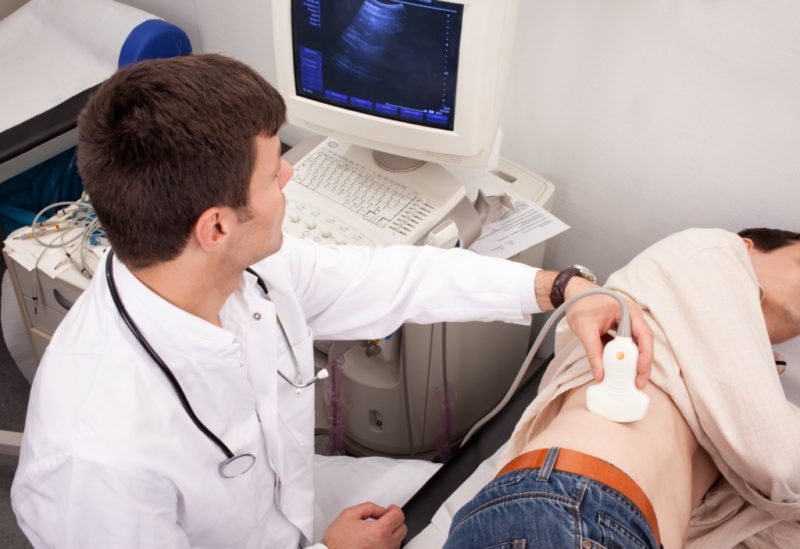
The reasons for the popularity of ultrasound are easily explained:
- the procedure is not accompanied by pain and does not cause adverse reactions;
- high level of information - allows you to identify cysts, tumors, stones, as well as abnormalities in the location of the organ;
- the possibility of repeated use without the risk of complications;
- no use of contrast agents;
- quick decryption of results.
During the procedure, the shape, structure, clarity of the contours and size of the kidneys are studied. The results of the study are compared with indicators of the normal state of the organ in order to detect abnormal abnormalities.
In addition, ultrasound of the kidneys allows us to draw conclusions about the presence of echopositive formations.The pathogenically altered tissues — cysts, stones, salts, sand and tumors — possess the property of reflection of ultrasonic waves.
Indications and contraindications for renal ultrasound
The direction for an ultrasound of the kidneys is prescribed by the attending physician. His responsibilities also include detailed recommendations on the preparation of the patient for the procedure.
An indication for an ultrasound scan can be any deviations in the kidneys or their signs:
- pain in the lower back;
- jumps in blood pressure;
- lower back injuries;
- swelling
- pain or discomfort when urinating;
- infertility;
- change in the quality of urine - color, volume, indicators of analysis.
The ultrasound examination procedure must be postponed after radiological procedures using barium, as well as if the patient has open wounds in the abdomen.
Ultrasound of the kidneys - general preparation for the study
According to the standard medical protocol, preparation for an ultrasound of the kidneys involves several stages:
- change in diet, switch to diet;
- compliance with the drinking regime;
- bowel cleansing;
- drug exposure.
The same rules are observed when preparing for ultrasound of other organs of the genitourinary system.
How to eat before the procedure?
Changing the diet and switching to a diet before undergoing ultrasound is a necessity due to the fact that ultrasonic waves are not able to pass through gas congestions in the intestine. The presence of gases significantly complicates the diagnosis.
Changing the diet and the correct drinking regime can not only prevent the formation of gases, but also eliminate existing congestions.
Prohibited Products
During the three days preceding the date of the study, the patient must exclude products that enhance gas production from the diet.

Prohibited:
- potatoes;
- milk;
- raw vegetables;
- fatty foods, including soups and broths;
- fried and smoked food;
- spicy and salty foods;
- fruits;
- black bread;
- sweets and pastries;
- alcohol;
- carbonated and strong drinks.
Subject to a proper diet, gas production will cease, and their residues will gradually leave the intestines.
Allowed Foods
Nutrition during the preparation should be light, not complicating the work of the intestines and not provoking the formation of gases.

The following products are recommended for use:
- hard cheese with a low fat content;
- porridge from pearl barley, oat or buckwheat;
- lean meat - beef, chicken, boiled rabbit;
- low-fat boiled sea fish;
- dried white bread;
- eggs - one per day.
Immediately on the day of the procedure, you should refuse food, especially if you plan to study the entire abdominal cavity. The last meal is allowed no later than 8 hours before the start of the ultrasound. Dinner on the eve of the event should be light, consisting of dietary products.
Do I need to drink water before an ultrasound of the kidneys?
The drinking regimen during the preparation in the ultrasound of the kidneys consists in taking boiled water and weak unsweetened tea. On the day of the event, it is recommended to increase the volume of fluid received to half a liter - the indicated volume must be drunk within an hour before the start of the ultrasound.

The use of sparkling water on the day of the ultrasound is strictly prohibited.
In this case, it is better not to rush with a visit to the toilet until the end of the study - doctors insist on filling the bladder, as this improves the patency of ultrasound and increases the informational content of the procedure.
Features of drug preparation
Medication involves taking medications to cleanse the intestines of gases and improve the quality of visualization of the investigated organs.
The use of sorbents before ultrasound of the kidneys
The best way to reduce the intestinal gas filling is to take sorbents.

Activated carbon - sorbent with the ability to bind toxins and prevent the formation of gases.In preparation for an ultrasound, activated charcoal is taken for 2-3 days twice a day for two to three tablets. On the day of the procedure, taking the drug is appropriate if an ultrasound scan is scheduled for the afternoon.
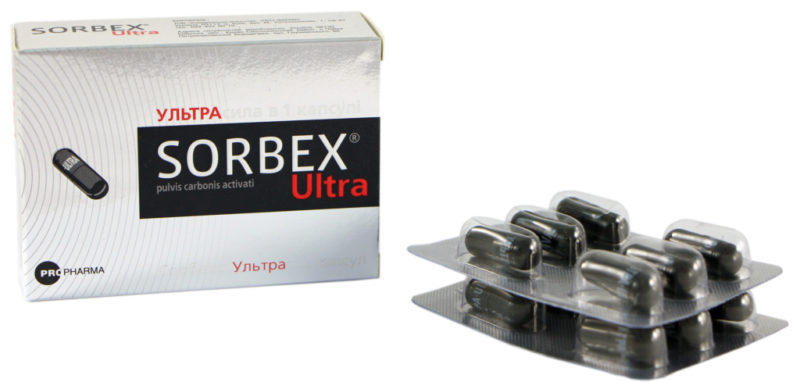
Sorbex - detoxification drug used to prevent flatulence. The recommended intake is 1-2 capsules three times a day, washed down with water.
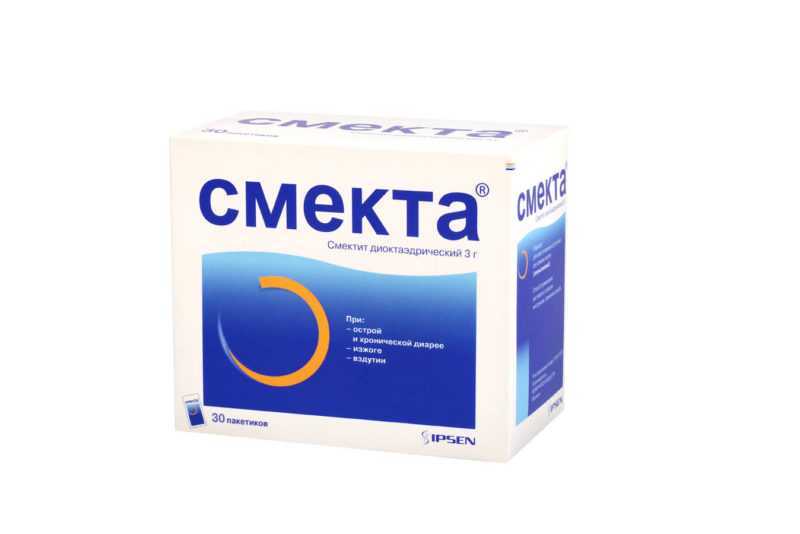
Smecta - a product of natural origin with adsorbing properties. Does not affect intestinal motility. It is excreted unchanged from the body. Reception - three times a day, one sachet previously dissolved in half a glass of boiled water.

Espumisan - a surfactant that dissolves gas bubbles. Helps to eliminate gas accumulations and remove them from the intestines in a natural way. On the eve of the study, I take the drug three capsules three times a day or 50 drops. On the day of the procedure, the medicine is taken once - in the morning.
The use of other types of drugs before ultrasound of the kidneys
For patients suffering from constipation, laxatives are additionally prescribed:
- Guttalax - local laxative, stimulating the mucosa of the large intestine and enhancing peristalsis. Single dose - 10-20 drops in the evening, on the eve of the procedure;
- Picolax - a tool that enhances the movement of feces in the intestine. Reception - one tablet in the evening, on the eve of the procedure;
- Microlax - a means of rapid action, microclyster. The therapeutic effect occurs 15 minutes after the introduction of the drug into the rectum.
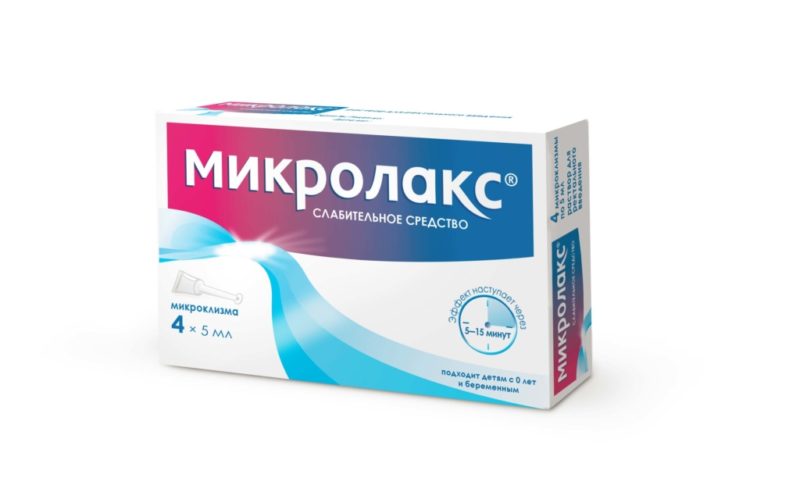
Depending on the patient’s state of health, the preparation period may also include taking other types of medicines. In the presence of enzymatic deficiency, patients are prescribed Mezim or Pancreatin. With a tendency to edema, diuretics can be prescribed - Furosemide or Hypothiazide.
The use of any medication as a means of improving the quality of preparation for ultrasound of the kidneys is permissible only with the permission of the attending physician.
Features of preparation for pregnant women and children
Standard rules for preparing for an ultrasound of the kidneys are designed for adult men and women. Whereas for pregnant women and children there are special instructions that take into account the peculiarities of their physiology.
Preparation for ultrasound of the kidneys of children
Elimination of gas congestion in the intestines and a filled bladder before an ultrasound of the kidneys are requirements that remain valid for children.
The optimal drugs for eliminating flatulence in children are considered Espumisan, Bobotik or Cuplaton, which are prescribed three days before the procedure, in accordance with the doctor's recommendations.

In addition, within three days before an ultrasound of the kidneys, the child should be transferred to light meals - cereals on the water, boiled poultry meat without fat, cheese, boiled egg. It is recommended to exclude from the diet milk and dairy products, fresh vegetables and fruits, sweets, chewing gum, soda. Babies are not recommended to mashed fruits or vegetables.
A special drinking regime that provides the desired level of filling the bladder is used directly on the day of the study.

The amount of fluid needed depends on the age of the child and the size of his bladder:
- for two-year-olds, it is enough to drink 100 ml of still water or berry juice;
- children from 2 to 7 years old are recommended to drink 250 ml of liquid;
- a child from 7 to 11 years old should start taking fluid 30-40 minutes before the procedure - 400 ml;
- children from 11 to 15 years old need to drink 500-800 ml - an hour and a half before the procedure;
- it is enough for infants to drink a little liquid 15 minutes before the ultrasound.
Taking medication on the day of the study is prohibited.
Preparation for ultrasound of the kidneys during pregnancy
Ultrasound of the kidneys is not included in the list of procedures required for examination of pregnant women, but is recommended for the timely detection of abnormalities in the organs of the genitourinary system, as well as with appropriate medical indications.
The main recommendations for preparing for an ultrasound scan include switching to a diet three days before the procedure, as well as taking enterosorbents, laxatives and diuretics. Switching to a special drinking regimen for pregnant women is not required.
Before examining with ultrasound, it is advisable to remove jewelry and take a towel with you to remove the remnants of the gel, which increases the echo conductivity.
Fulfillment of all the doctor’s recommendations for preparation for an ultrasound examination of the kidneys allows you to get complete diagnostic information, which means it increases the chances of successful treatment and an early recovery.







